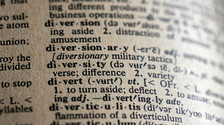Wonnoh
How do the Americans pronounce the tt sound of 'little'?
I'd like to know the native americans' pronunciation t sound in the words.
It's about L sound. L has two sounds. If the L comes before a vowel within a syllable, like in the word little, then it is 'light L'. If it comes after the vowel in a syllable, like in the word real, then it is a 'dark L'. They are different sounds.
My question is... HOW DOES IT SOUND '-TT-' or '-T-' in the word little? Or in the words waTer, goTTa, SeaTTle.... Do you think that T sounds L or R?
I think that the sound comes out if you flip the tip of your tongue against the roof of your mouth. So it is different from L or R sound, I insist. (It sounds like Korean L (ㄹ Lieul) which native English speakers can't pronounce)Thank you, Daniel, Guillaume, Robert!
I change my question: HOW DOES IT SOUND "-T-" in the words "water, motor, a lot of"?
Aug 6, 2010 9:25 AM
Answers · 4
2
The T in "water" and "motor" and "a lot of" should (typically) be pronounced with the tip of your tongue against the back of your top row of teeth. This is called an "unvoiced consonant" (you're pronouncing the word by forming your tongue and exhaling air, not by vibrating your vocal chords).
In many dialects, however, the T can sound like a D for many words (like the example Robert gave). Because English can be spoken very quickly and words run together, or sounds are compromised, "water" can sound like "wadder," and the listener wouldn't question that--you sound normal saying "waTer" or "wadder."
When the T sound turns into a D sound, it's then called a "voiced consonant," meaning you're still placing your tongue in the same position, but instead of exhaling air to make the sound, you vibrate your vocal chords.
Many consonants have letters that can demonstrate this:
B is a voiced consonant when you vibrate your chords to make the B sound in "begin."
P is an unvoiced consonant because you don't vibrate your chords to make the sound of P in the word "supper," but you form your mouth the same way for each letter.
You also form your mouth in the same way for each of the following voiced/unvoiced pairs:
V is voiced because you vibrate your vocal chords, as when pronouncing "victory."
F is unvoiced because you exhale and don't vibrate your vocal chords when pronouncing the word "family."
G is voiced because you vibrate your vocal chords, as when pronouncing "gone."
K is unvoiced because you exhale and don't vibrate your vocal chords when pronouncing the word "kite."
Z is voiced because you vibrate your vocal chords, as when pronouncing "zebra."
S is unvoiced because you exhale and don't vibrate your vocal chords when pronouncing the word "silly."
August 6, 2010
A double T in the middle of a word becomes a soft 'D' sound. I come from Seattle, we pronounced it 'See-Ah-dull', the 'Ah' as in 'Adam'.
August 6, 2010
I would say in american english, little
is pronounced like "leedall"
August 6, 2010
Usually, it's a "flip the tip of your tongue against the roof of your mouth" type sound, but, in some American dialects, the "t" sounds like "d" in some of these words or isn't pronounced at all.
August 6, 2010
Still haven’t found your answers?
Write down your questions and let the native speakers help you!
Wonnoh
Language Skills
English, Japanese, Korean
Learning Language
English, Japanese
Articles You May Also Like

Top 6 Mistakes to Avoid with Vocabulary Acquisition
38 likes · 10 Comments

Navigating Your First Job: Do's and Don'ts in the Workplace
47 likes · 20 Comments

What Content to Watch to Acquire Advanced-level Proficiency
79 likes · 50 Comments
More articles
